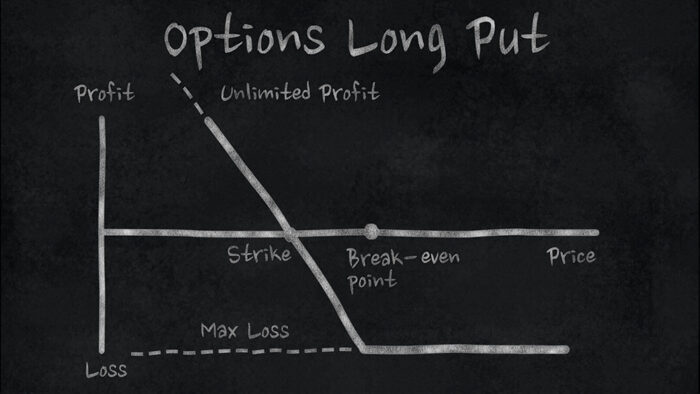Here is a brief 2023 beginner guide to bonds.
Bonds are a type of debt security that companies, municipalities, and governments issue to raise capital. They pay periodic interest to bondholders and return the principal when the bonds mature. In this article, we’ll go over the basics of how bonds work, the different types of bonds, and why investors might consider adding them to their investment portfolios.
What are bonds?
Bonds are essentially loans that investors make to the issuer in exchange for interest payments and the return of principal at a later date. When a company or government needs to raise money, it can issue bonds to investors in exchange for the cash it needs. The issuer agrees to pay the investor a set amount of interest. This interest is what investors call the coupon rate, over a specified period of time. At the end of the loan term, the issuer returns the principal amount to the investor.
Bonds are typically issued in increments of $1,000, and the interest payments are made semi-annually. For example, if you buy a bond with a face value of $1,000 and a coupon rate of 5%. You’ll receive interest payments of $25 every six months until the bond matures. When the bond matures, the issuer returns the original $1,000 to you.
Types Of Bonds
There are many different types of bonds, including corporate bonds, municipal bonds, and government bonds. Corporate bonds are issued by companies to fund their operations and expand their businesses.
Municipal bonds are issued by local governments to finance public projects, such as schools, roads, and water treatment plants. And, Government bonds are issued by national governments to finance their operations and pay for public projects.
What are the risks and returns of bonds?
Bonds are considered to be a relatively low-risk investment compared to stocks. This is because the issuer has agreed to pay a fixed rate of interest and return the principal at a predetermined date. However, there are still some risks to consider when investing in bonds.
One risk is interest rate risk. When interest rates rise, the value of existing bonds tends to fall, as new bonds are being issued at higher rates. This means that if you buy a bond at a low-interest rate and then interest rates rise, the value of your bond may decrease.
Another risk is credit risk, which refers to the risk that the issuer will default on its payment obligations. If the issuer becomes financially distressed, it may be unable to make the required interest payments or return the principal when the bond matures. This is more of a concern with corporate bonds. As the issuer may be more likely to default than a government or municipality.
Despite these risks, bonds can still be a good investment for certain investors. They generally offer a lower potential return compared to stocks, but they also offer a more predictable stream of income. This can make them a good choice for investors who are looking for a steady stream of income or who are risk-averse and want to diversify their portfolios with a mix of stocks and bonds.
How are bonds priced?
Next, the price of a bond is determined by the market demand for the bond and the prevailing interest rates. If interest rates rise, the price of existing bonds will tend to fall. As new bonds are being issued at higher rates. If interest rates fall, the price of existing bonds will tend to rise. As they become more attractive compared to new bonds being issued at lower rates.
Bonds are also rated by credit rating agencies, such as Moody’s and Standard & Poors. This evaluates the issuer’s creditworthiness and ability to make the required interest payments and return the principal. The higher the credit rating, the lower the credit risk and the more valuable the bond is.
How can you invest in Bonds?
There are several ways to invest in bonds. This includes buying individual bonds, purchasing bond mutual funds or exchange-traded funds (ETFs), and investing in bond ladders.
Buying individual bonds allows you to choose specific bonds to invest in and tailor your portfolio to your investment objectives. You can buy bonds directly from the issuer or through a broker. Keep in mind, that buying individual bonds requires a larger initial investment. This comes as bonds generally sell in increments of $1,000.
Bond mutual funds and ETFs allow you to invest in a diverse portfolio of bonds with a smaller initial investment. These funds are managed by professional investors who select a mix of bonds to include in the fund. Bond mutual funds and ETFs offer the benefits of diversification and professional management. However, they also come with management fees, which can reduce your overall returns.
A bond ladder is a portfolio of bonds with different maturities that are invested in over time. For example, you might invest in bonds that mature in one year, three years, five years, and 10 years. This strategy allows you to take advantage of potential changes in interest rates and provides a steady stream of income as the bonds mature.
Bottom Line
Bonds are a type of debt security. They can be a good addition to an investment portfolio for investors looking for a more predictable stream of income. Or for someone who wants to diversify their portfolio with a mix of stocks and bonds.
There are many different types of bonds to choose from. Investors can buy individual bonds, invest in bond mutual funds or ETFs, or create a bond ladder. It’s important to consider the risks and returns of bonds and to diversify your portfolio to manage risk.
—
Originally Posted January 6, 2023 – What Are Bonds? Your 2023 Beginner’s Guide
Disclosure: Interactive Brokers
Information posted on IBKR Campus that is provided by third-parties does NOT constitute a recommendation that you should contract for the services of that third party. Third-party participants who contribute to IBKR Campus are independent of Interactive Brokers and Interactive Brokers does not make any representations or warranties concerning the services offered, their past or future performance, or the accuracy of the information provided by the third party. Past performance is no guarantee of future results.
This material is from StockMarket.com and is being posted with its permission. The views expressed in this material are solely those of the author and/or StockMarket.com and Interactive Brokers is not endorsing or recommending any investment or trading discussed in the material. This material is not and should not be construed as an offer to buy or sell any security. It should not be construed as research or investment advice or a recommendation to buy, sell or hold any security or commodity. This material does not and is not intended to take into account the particular financial conditions, investment objectives or requirements of individual customers. Before acting on this material, you should consider whether it is suitable for your particular circumstances and, as necessary, seek professional advice.
Disclosure: Mutual Funds
Mutual Funds are investments that pool the funds of investors to purchase a range of securities to meet specified objectives, such as growth, income or both. Investors are reminded to consider the various objectives, fees, and other risks associated with investing in Mutual Funds. Please read the prospectus accordingly. This communication is not to be construed as a recommendation, solicitation or promotion of any specific fund, or family of funds. Interactive Brokers may receive compensation from fund companies in connection with purchases and holdings of mutual fund shares. Such compensation is paid out of the funds' assets. However, IBKR does not solicit you to invest in specific funds and does not recommend specific funds or any other products to you. For additional information please visit https://www.interactivebrokers.com/en/index.php?f=1563&p=mf
Disclosure: ETFs
Any discussion or mention of an ETF is not to be construed as recommendation, promotion or solicitation. All investors should review and consider associated investment risks, charges and expenses of the investment company or fund prior to investing. Before acting on this material, you should consider whether it is suitable for your particular circumstances and, as necessary, seek professional advice.




















